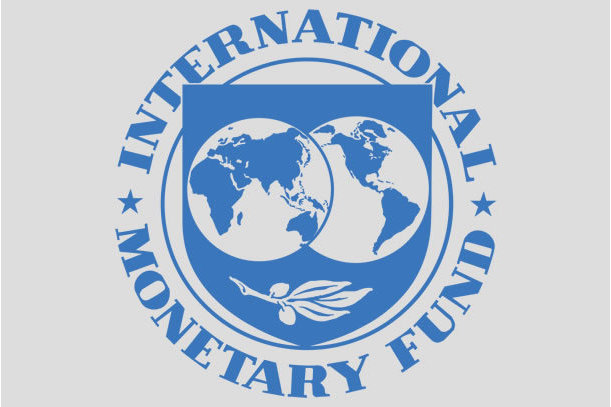Latest News
IMF’s austerity loan conditions risk undermining rights – HRW

News Highlight
“The IMF’s experiment of trying to offset the harm caused by austerity programmes simply isn’t working,” said Sarah Saadoun, senior researcher and advocate on economic justice and rights at Human Rights Watch.
The International Monetary Fund (IMF), with a global debt crisis looming, is setting conditions for its loans that risk undermining people’s economic, social, and cultural rights, Human Rights Watch (HRW) has said in a new report. The conditions are compounding problems related to rising inequality, says the report.
The 131-page report, “Bandage on a Bullet Wound: IMF Social Spending Floors and the Covid-19 Pandemic,” released on 25 September 2023, analyses loans approved from March 2020, at the start of the Covid-19 pandemic, until March 2023 to 38 countries, with a total population of 1.1 billion. It finds that the vast majority are conditioned on austerity policies, which reduce government spending or increase regressive taxes in ways likely to harm human rights.
The report also finds that recent IMF initiatives, announced at the beginning of the pandemic, to mitigate these impacts such as social spending floors are flawed and ineffective in addressing the harms caused by the policies. The report features a case study of Jordan, where a series of IMF programmes have introduced sweeping economic reforms over the past decade, but mitigation measures have been inadequate to address the harm to rights.
“Escalating protests in Pakistan against rising costs linked to IMF demands, which follow similar protests in other countries, should serve as a wake-up call to the IMF ahead of its upcoming Annual Meetings in October,” said Sarah Saadoun, senior researcher and advocate on economic justice and rights at Human Rights Watch. “Despite its promises at the beginning of the pandemic to learn from past mistakes, the IMF is pushing policies that have a long track record of exacerbating poverty and inequality and undermining rights.”
HRW said in a statement sent to Financial Nigeria that IMF’s own internal research indicates that these policies also are generally not effective for reducing debt, which is their chief objective. IMF’s World Economic Outlook published in April 2023 observed that fiscal consolidations – a term usually linked to austerity programmes – “do not reduce debt ratios, on average.”
According to the statement, international financial institutions and governments have international human rights obligations to respond to economic crises in ways that protect and advance rights in both the short and long term. Austerity measures that broadly reduce government spending on essential public services or significantly increase regressive taxes have a well-documented history of undermining rights.
The report reviewed 39 programmes of the IMF. According to its findings, only one of them explicitly sought to assess the impact on people’s effective income. 22 programmes include measures to contain or reduce public wage bills, generally through freezing hires or capping or lowering salaries, compromising governments’ ability to deliver quality public services that are guaranteed as rights. Such measures persist despite IMF guidance, approved in 2007, discouraging public wage caps other than in exceptional circumstances, where they are “justified in a transparent manner.” Few programmes include any such justification.
Also, 23 programmes include advice or measures to increase revenues from value-added taxes, an indirect tax that tends to be regressive and exacerbate inequalities since the rate is the same for people regardless of income. And 20 programmes remove or reduce consumption-based subsidies on fuel or electricity or develop plans to do so without adequately investing in social security or other compensatory measures or in clean sources of energy.
HRW said measures to mitigate the impact of austerity measures typically include incorporating what the IMF refers to as “social spending floors,” which typically set minimum government spending targets in areas such as education, health care, and social protection, as well as some efforts to improve social protection, which are programmes intended to address income insecurity.
As part of its recommendations, HRW said the IMF should conduct sweeping reforms to effectively support governments to build economies that allow everyone to realize their economic, social, and cultural rights. It should redesign social spending floors to address systemic flaws, commit to supporting universal social protection programmes, and stop promoting means-tested programmes. It should also commit to formally recognise a duty to respect, protect, and fulfil all human rights, including socioeconomic rights, in all its work, without discrimination.
“The IMF’s experiment of trying to offset the harm caused by austerity programmes simply isn’t working,” Saadoun said. “It needs a new approach that makes the fulfilment of economic and social rights the starting point.”
Related News
Latest Blogs
- The Museum of West African Art saga
- The complexity and complication of Nigeria’s insecurity
- Between bold is wise and wise is bold
- Prospects of port community system in Nigeria’s maritime sector
- Constitutionalism must anchor discipline in Nigerian Armed Forces
Most Popular News
- NDIC pledges support towards financial system stability
- Artificial intelligence can help to reduce youth unemployment in Africa – ...
- Africa needs €240 billion in factoring volumes for SME-led transformation
- ChatGPT is now the most-downloaded app – report
- Global trade to hit record $35 trillion despite slowing momentum
- CBN licences 82 bureaux de change under revised guidelines






